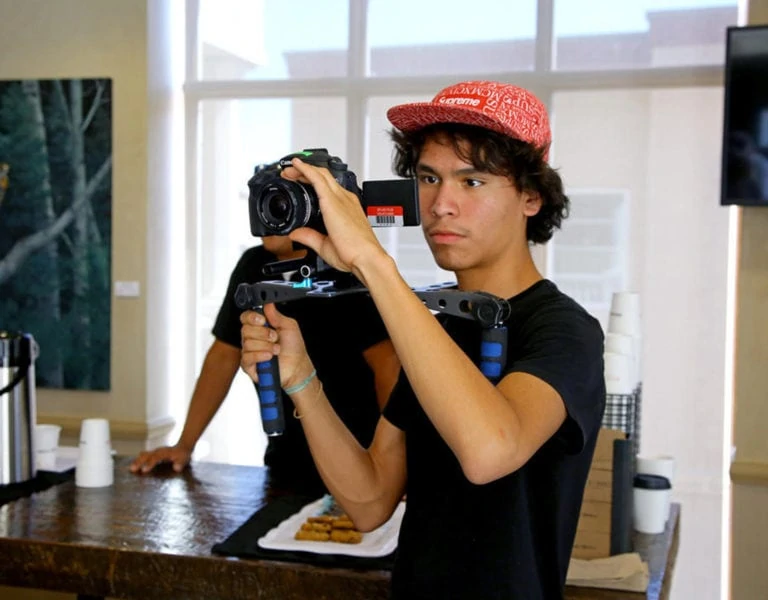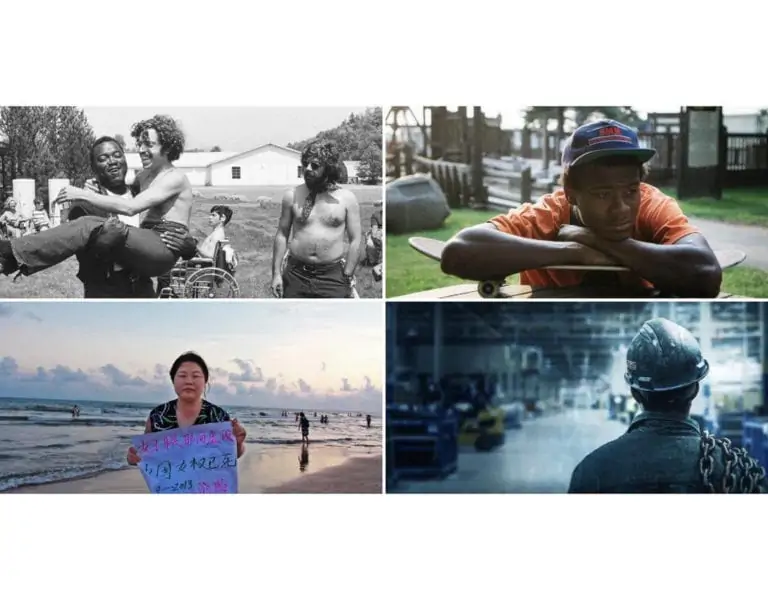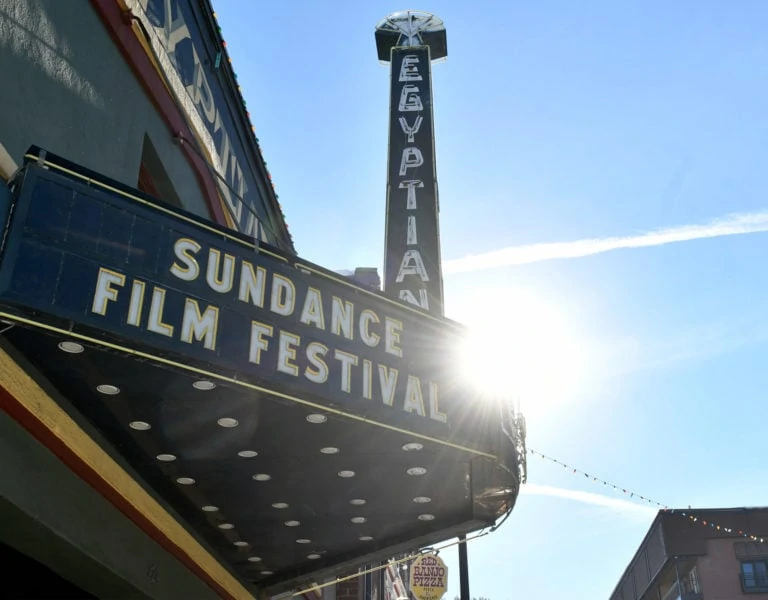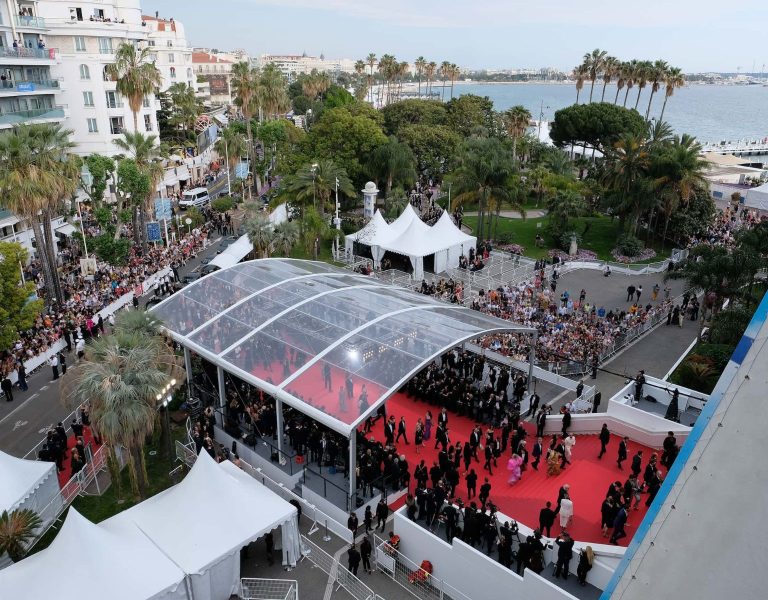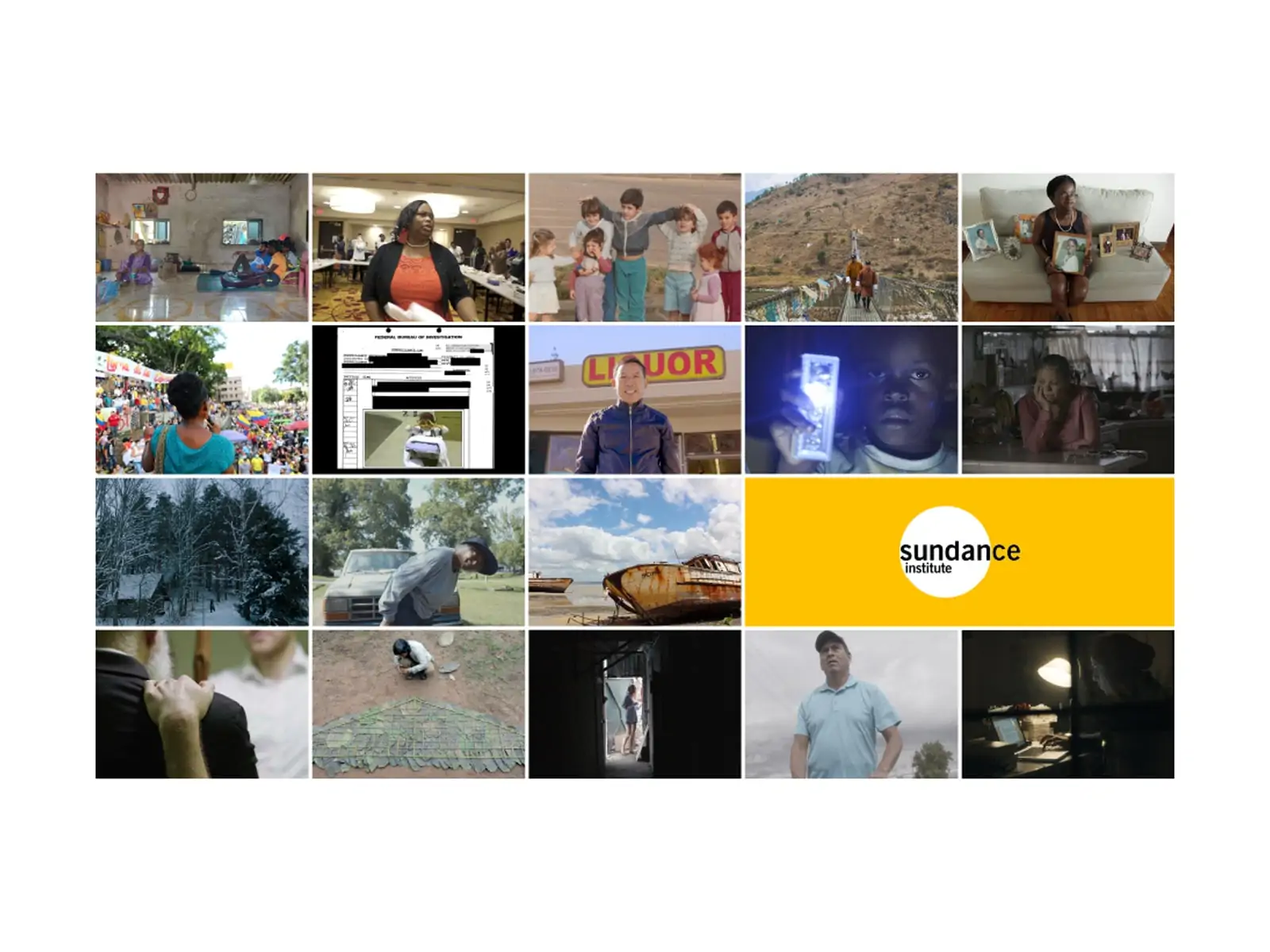
The Sundance Institute has announced the latest cohort of Sundance Institute Documentary Fund Grantees. A total of $590,000 in unrestricted grant support has been provided to 18 projects in various stages including five in development, eight in production, and five in post-production. Grants are made possible by The Open Society Foundations, the John D. and Catherine T. MacArthur Foundation, and Luminate.
This granting cycle’s supported projects are from 20 countries and territories across five continents (Africa, Asia, Europe, North America, and South America), with over half the projects having international roots. Granting focused on projects by artists from historically underrepresented communities, ensuring that these stories are being told from within the communities. This year all of the U.S. films granted are helmed by at least one BIPOC director. The Fund’s commitment to gender equity is evidenced in the 72% of granted projects that are helmed by women directors; additionally, 72% of grantees are early career filmmakers, working on their first or second feature film. These statistics reflect the Fund’s commitment to emerging artists whose voices have been historically marginalized in hegemonic Western societies.
“Supporting equity in storytelling by elevating diverse cohorts is central to our mission,” said Hajnal Molnar-Szakacs, Documentary Film Fund director. “Sundance funding can play a vital role in creating a space for freedom of speech, stimulating local documentary production and ensuring that nonfiction narratives from around the world are elevated.”
“This cohort of grantees reflects deeply artistic and personal storytelling, as they explore and reveal the contemporary human condition in all its complexity,” said Carrie Lozano, Director of the Institute’s Documentary Film Program.
The Documentary Fund supports the work of nonfiction filmmakers from around the globe. In a changing media landscape, the fund has been a stable, progressive force in supporting work that has expressed the world in creative, complex, beautiful, and provocative ways, and has created real cultural and social impact around some of the most pressing issues of our time. Recent projects supported include: American Factory, Collective, Crip Camp: A Disability Revolution, The Edge of Democracy, Of Fathers and Sons, Hale County This Morning, This Evening, Hooligan Sparrow, Minding the Gap, The Mole Agent, One Child Nation, Strong Island, and Time.
The application for the next cycle of funding is currently open and closes on July 26th. The application can be found here.
The latest grantees, presented by production stage, are:
DEVELOPMENT
The Gardeners (U.S.A.)
Director: Crystal Kayiza
Producer: Crystal Kayiza
The Gardeners follows the Worthy Women of Watkins Street, keepers of one of the oldest Black cemeteries in Mississippi.
Gross National Happiness (Bhutan, Hungary)
Director: Arun Bhattarai, Dorottya Zurbó
Producer: Noémi Veronika Szakonyi, Arun Bhattarai
Amar and Gunaraj are not only close friends, but also Happiness Agents who work together for the Happiness Ministry of Bhutan travelling door to door measuring people’s happiness level while searching for their own among the remote Himalayan mountains. On their mission, they encounter various people chasing their dreams. This satirical road movie through a mosaic of different stories discovers the real desires of a society behind a national identity created by the Happiness Ministry of Bhutan, a closed country for centuries.
The Ship and the Sea (Mozambique, Brazil, Portugal)
Director: Lara Sousa, Everlane Moraes
Producer: Matheus Mello, Emerson d’Almeida, Joelma Oliveira Gonzaga, Elsa Sertorio
A cinematographic essay that portrays two crossed travels, weaved by travel diaries between “two Africas”. Everlane leaves for Mozambique looking for the roots of a cultural matrix that is the cradle of Afro-descendants in Brazil. Lara searches in Everlane’s country’s Afro-descendant culture for traces of her erased identity. Later, both meet in Lisbon, the former colonial metropolis, where they cross experiences to shed light on the issue of black identity inside and outside of Africa.
The Tongue of Water (France, Cambodia)
Director: Polen Ly
Producers: Rithy Panh, Lucas Sénécaut, Thibaut Amri
Neang, an indigenous woman, struggles to rebuild a new life after a hydropower dam’s reservoir swallowed her entire village, broke up her family, and forced them to live in a new place. This journey of resilience will show Neang’s determination to protect her family’s lifestyle between memories of her land, and harmony and connection with nature.
Under the Dance Floor (Hungary)
Director: Sára Timár
Producer: Krisztina Meggyes
Sári, a young photographer, lives with her family in a villa house in Budapest which is saturated in the atmosphere of folk dance. For a long time, nobody cared about the cellar under the house which served as a secret prison for the defendants of the show trials in the communist era. But the descendants of the formal residents suddenly appear and unsettle the everyday life of the family. Sári attempts to untangle the knots of the past. But does she know what it takes?
PRODUCTION
Against the Tide (India)
Directors: Sarvnik Kaur
Producers: Sarvnik Kaur, Koval Bhatia
A tale of love, brotherhood, and resentments against the backdrop of an adoring sea, which is turning adverse under the menacing effects of an all-pervading calamity called climate change.
Do You Love Me (working title) (Lebanon, Germany)
Director: Lana Daher
Producer: Lana Daher, Jasper Mielke
Do You Love Me, named after the Bendaly Family song (1978), is an archive-based documentary about the history of Lebanon and its generations since the years preceding the civil war (1960’s–70’s) until now. Through the country’s musical, cinematic, and journalistic archives, the film tells the story of a society’s struggles and dreams, and what shapes them as people today.
Igualada (Colombia)
Director: Juan Mejia
Producer: Juan Yepes
Igualada is a film about one determined and courageous woman, but also the story of a once-in-a-lifetime presidential campaign where Francia Márquez’s uncompromising appeal for justice inspires a movement in a country allowing itself to dream. Supported by the Sundance Institute | Luminate Fund
Inverse Surveillance Project (U.S.A.)
Director: Assia Boundaoui
Producer: Nouha Boundaoui
The Inverse Surveillance Project is a hybrid documentary project, co-created with our Muslim-American community in Chicago, which repurposes thousands of records collected during a decade of FBI surveillance as raw material for creating a counter-archive and makes space for a surveilled community to build power, seek truth and heal. Supported by the Sundance Institute | Luminate Fund
Rising Up at Night (Democratic Republic of the Congo, Belgium)
Director: Nelson Makengo
Producer: Rosa Spaliviero, Dada Kahindo Siku
As Congo launches the construction of Africa’s largest power plant on the Congo River, Kinshasa finds itself in darkness and its people struggle for access to light.
Smoke Sauna Sisterhood (Estonia, France, Iceland)
Director: Anna Hints
Producer: Marianne Ostrat, Juliette Cazanave, Pierre Jestaz, Hlín Jóhannesdóttir
In the darkness of the smoke sauna, women share their innermost secrets and intimate experiences. Through a sense of communion, women wash off the shame trapped in their bodies and regain their strength.
The Therapy (Israel)
Director: Zvi Landsman
Producer: Ori Szternfeld, Zvi Landsman
An exclusive look inside “conversion therapy” that promises to make homosexuals straight. Lev and Ben both attend conversion therapy, but while Lev is fully engaged, Ben is having doubts. He starts investigating if conversion is possible, or if, as claimed by many, it is a deadly dangerous lie.
Untitled (U.S.A., Canada)
Director: Sura Mallouh
Producer: Sura Mallouh, Laura Poitras, Yoni Golijov
Two friends uncover a conflict that divides their already embattled community. Told from all sides, with unprecedented access to courtrooms, anonymous sources, and community leaders, this observational film unfolds in real time.
POST-PRODUCTION
Black Mothers (U.S.A.)
Director: Débora Souza Silva
Producers: Débora Souza Silva, David Felix Sutcliffe
Violence. Outrage. Impunity. Repeat. Black Mothers follows the journey of two women battling to break America’s cycle of racist police violence. As one mother investigates the cover-up of her son’s attack by law enforcement, the other channels her grief into organizing mothers across the country as they fight for justice. Supported by the Sundance Institute | Luminate Fund
Hazing (U.S.A.)
Director: Byron Hurt
Producer: Natalie Bullock Brown
Director Byron Hurt lifts the veil on a variety of underground hazing rituals that are abusive and sometimes deadly. Byron’s introspective journey to understand hazing culture reveals a world of toxic masculinity, violence, humiliation, binge drinking, denial, and institutional coverups.
Liquor Store Dreams (U.S.A.)
Director: So Yun Um
Producer: So Yun Um, Eddie Kim
Through the personal lens of Director So Yun Um, the film is an intimate portrait of two Korean American children of liquor store owners. Tracing through the ‘92 LA Uprisings to the current BLM movements, they navigate familial duty and their own dreams amidst a fading generation of Korean-owned liquor stores in Los Angeles.
Silent Beauty (U.S.A., Mexico)
Director: Jasmin Mara López
Producer: Jasmin Mara López
Silent Beauty is an autobiographical exploration of my family’s history with child sexual abuse and a culture of silence.
Untitled Muscogee Nation Documentary (Muscogee Nation, U.S.A.)
Director: Rebecca Landsberry-Baker, Joe Peeler
Producer: Conrad Beilharz, Garrett Baker, Tyler Graim
After years of hard-hitting journalism, the Muscogee Nation’s landmark Free Press Act was suddenly repealed in 2018, forcing tribal journalists to publish a newly-censored version of The Mvskoke News. With the historic McGirt v. Oklahoma Supreme Court case looming, a dogged reporter takes up the fight to expose the corruption and bring their free press back.
